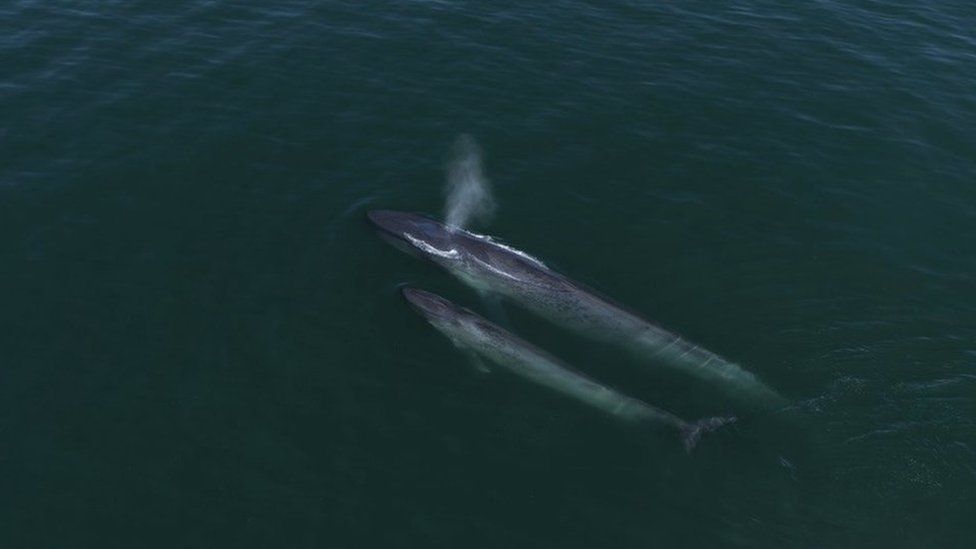-

-
-
Loading

Loading

Blue whales, the largest animals on Earth, have returned to a part of the Indian Ocean where they were previously wiped out by whaling decades ago. Researchers and filmmakers in the Seychelles captured footage of the whales in 2020 and 2021, which is featured in the Imax film Return of the Giants. However, a year of underwater audio recording revealed that the whales actually spend several months in the region, suggesting that they may be breeding there. This discovery is seen as a "conservation win" after the population was devastated by the Soviet whaling fleet in the 1960s. The impact of commercial whaling is still evident today, with blue whale numbers significantly lower than they were in the past. The species is currently listed as endangered. Over 300,000 blue whales were killed in the southern hemisphere alone, hunted by modern, fast whaling ships. Lead researcher Dr. Kate Stafford emphasizes the significance of this discovery, stating that it demonstrates how allowing animals to recover when they are no longer killed on mass scales can lead to population rebound. The study, published in the Journal of Endangered Species Research, involved the use of a "sound trap" fixed to the seabed near the Seychelles. This trap, equipped with underwater microphones and recording devices, was left in place for a year to capture the sounds of the ocean. The analysis of the recordings revealed the presence of blue whales and their characteristic low-frequency songs primarily during March and April, suggesting that the Seychelles is an important area for these whales during the breeding season. The researchers were able to differentiate the acoustic population of the blue whales in the Seychelles based on the sounds they make. The study also highlights the fact that the low-frequency songs of blue whales are beyond the range of human hearing, but harmonics or higher-frequency sounds produced when they sing can be heard. Blue whale vocalizations are the loudest and most sustained sounds in the animal kingdom, reaching around 188 decibels. Conservation scientists are now interested in understanding the Seychelles' significance for blue whales and protecting important areas from noise pollution. The country has implemented measures to safeguard its oceans, with around 400,000 square kilometers of its seas formally protected. The hope is that the Seychelles can provide a safe and quiet environment for blue whales to thrive.